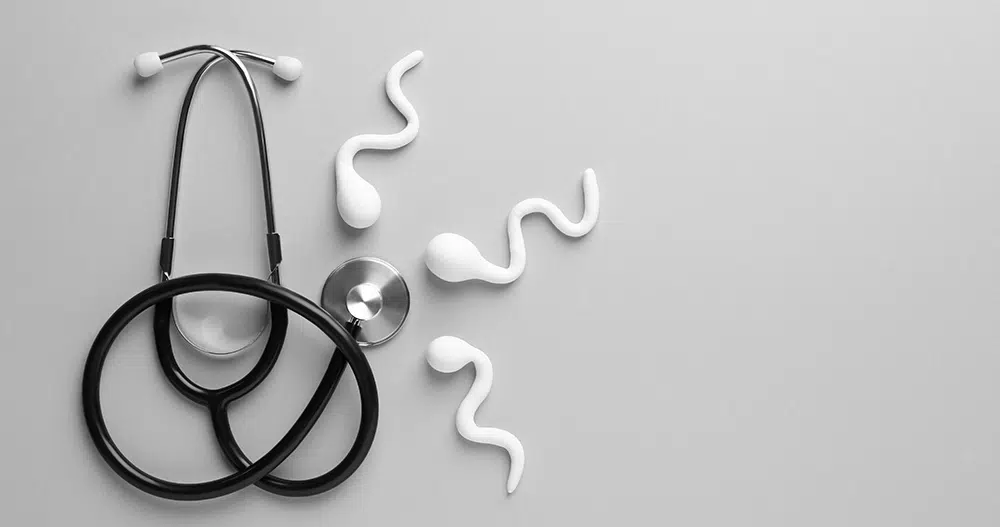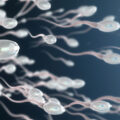Last updated on June 19, 2025
Caffeine is one of the most widely consumed stimulants in the world. Whether it’s coffee, energy drinks, or soft drinks, many men rely on caffeine to boost alertness and energy levels throughout the day. But if you’re thinking about future family plans — or have undergone or are considering a vasectomy — it’s worth understanding how lifestyle habits like caffeine consumption may influence your reproductive health.
In this blog, we explore the relationship between fertility and caffeine, examining its potential impact on male hormones, sperm health and overall reproductive function. Understanding this connection can help you make informed decisions about your fertility, hormone health and long-term wellbeing.
How Caffeine Affects the Male Body
Caffeine acts as a central nervous system stimulant, increasing alertness by blocking adenosine receptors in the brain. But beyond boosting focus, it can also trigger a hormonal response, raising cortisol levels and affecting the endocrine system.
Regular or excessive caffeine intake can potentially disrupt natural hormonal rhythms, which play a key role in reproductive processes. While the body generally adapts to moderate levels, consistently high consumption may begin to affect the balance of key reproductive hormones.

Understanding the link between fertility and caffeine can help men make informed choices about coffee, energy drinks and reproductive health.
Caffeine and Testosterone: Is There a Link?
Testosterone is a critical hormone in male fertility, influencing sperm production, libido and overall hormonal health. Research into caffeine intake and testosterone has yielded mixed results.
Some studies suggest that short-term caffeine use may temporarily increase testosterone levels, likely due to heightened cortisol and adrenaline. However, excessive or long-term consumption may have the opposite effect, particularly when combined with poor sleep or chronic stress, both of which are known to disrupt testosterone regulation.
Maintaining hormonal balance in men is essential for healthy fertility. While moderate caffeine consumption doesn’t appear to cause significant disruption, high daily intake may contribute to hormonal imbalances over time.
Caffeine’s Impact on Sperm Health
When it comes to caffeine and sperm quality, researchers have focused on three key indicators:
- Sperm count
- Sperm motility (movement)
- Sperm morphology (shape and structure)
Some studies suggest that high caffeine intake, particularly from energy drinks and sodas, may negatively affect sperm motility and reduce overall sperm concentration. Conversely, coffee in moderation has not consistently shown adverse effects.
The inconsistency in findings often comes down to caffeine source and quantity. High-sugar caffeinated beverages and energy drinks are more likely to correlate with reduced male fertility due to their additional ingredients and effects on overall metabolic health.
Coffee vs Other Sources of Caffeine
Not all sources of caffeine have the same impact on reproductive health:
- Coffee – Generally safe in moderate amounts (1–2 cups/day).
- Energy Drinks – Contain high levels of caffeine and added stimulants, often associated with poorer sperm parameters.
- Soft Drinks – High in caffeine and sugar; overconsumption may harm overall health and fertility.
- Green Tea and Dark Chocolate – Contain lower doses of caffeine and other antioxidants, which may be less disruptive.
Ultimately, caffeine and fertility in men is a dose-dependent relationship — the more you consume, the more likely it is to have an effect.

How Much Caffeine Is Too Much?
Most studies agree that moderate caffeine intake is unlikely to cause serious harm to fertility. But what constitutes moderation? Current guidelines recommend limiting daily caffeine intake to no more than 400 mg per day, which is roughly:
- 3 cups of brewed coffee
- 6 cups of tea
- 2 energy drinks
- 5 to 6 cans of cola
Men who are trying to conceive may benefit from reducing intake to 200–300 mg per day. Tracking your daily intake and gradually reducing consumption can help mitigate any potential negative impact on sperm count and testosterone.
Supporting Fertility Through Lifestyle
Fertility isn’t determined by caffeine alone. Several other lifestyle factors play a role in supporting male reproductive health, including:
- Sleep – Consistent, high-quality sleep helps regulate testosterone and stress hormones.
- Exercise – Regular physical activity supports hormonal function and overall wellbeing.
- Nutrition – A balanced diet rich in antioxidants, zinc and healthy fats can support sperm health.
- Stress management – Chronic stress can suppress fertility-related hormones like testosterone.
For men considering vasectomy or exploring fertility support, it’s helpful to look at these factors holistically. At The Cooper Clinic, we offer tailored advice and services for men seeking long-term contraception or fertility-related support.
Conclusion
The relationship between fertility and caffeine is complex. While moderate coffee consumption is unlikely to harm male reproductive health, consistently high caffeine intake — especially from energy drinks or soft drinks — may have a negative effect on hormonal balance, sperm motility and overall male fertility.
If you’re trying to conceive or want to better understand how your lifestyle may affect your reproductive health, consider speaking to an experienced professional. Whether you’re exploring vasectomy, reversal, or simply taking proactive steps, The Cooper Clinic is here to support your choices.
How to book a vasectomy appointment
- Fill out our online booking form
- Call us: 0800 884 408
- Email us: info@thecooperclinic.co.nz
Frequently Asked Questions
Does drinking coffee affect male fertility?
Moderate coffee consumption is unlikely to harm male fertility. However, excessive caffeine may impact sperm motility and hormone levels.
Can too much caffeine affect sperm count?
Yes, high caffeine intake, especially from energy drinks or sugary soft drinks, has been linked to lower sperm count in some studies.
How does caffeine impact testosterone levels?
Research suggests caffeine may temporarily raise testosterone, but long-term high intake could disrupt hormonal balance in some men.
What is the link between caffeine and male fertility?
Caffeine affects hormonal pathways and may influence sperm health. The link is dose-dependent, with moderation being key for fertility.
Should men avoid caffeine when trying to conceive?
Men don’t need to eliminate caffeine completely, but reducing intake may be beneficial when actively trying to conceive.








